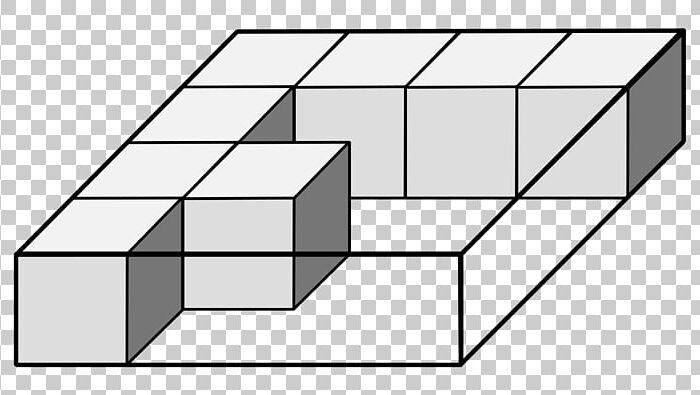Reflection papers make it possible for you to express your thoughts. You have the opportunity to speak with your college professor about how a particular article, lesson, or event influences your understanding. Even though reflection papers should be more personal and subjective, they need a reasonably academic tone. The writer should organize the paper comprehensively and cohesively. Some things make your reflections more successful. They will provide you with a deeper understanding of your perspectives.
What is a Reflection Paper?
At the University level, a reflection paper is quite common. A reflection paper is a paper that focuses less on giving facts about a subject but takes on a more personal approach. A reflection paper allows a student to share their feelings. It could be a discussion on anything. The possibilities are endless. You may access examples of self reflection essays online. As a student, you can address an educational, professional, or personal goal in a reflection paper. Each one has a somewhat unique quality to its tone. They can be between 300 and 750 words and occasionally even longer. Also, the text should include background about your subject, the main body, and a summary.
Tips on Writing a Reflection Paper
Below are tips to guide you when composing a reflection paper. They include:
1. Comprehend the material
Before you start writing the reflection paper, you must go over the information and review it. You might find it valuable to look at other comparable texts. In some reflection papers, you may have to analyze a specific occurrence. To guide your writing, you need to study personal reflection examples to help you learn to summarise texts or events. Doing this will help you to appreciate the text’s meaning better.
If the piece of writing you’re summarising is a piece of nonfiction, the author’s logic and a thesis statement could be part of your summary. You can present a plot synopsis if the book in question is fictional. Your summary is not an exact copy of the content. It may include your thoughts and feelings regarding the work. You might also compose an outline of your thoughts and the arguments that support them.
2. Conduct an Analysis of the Material
Before you write your reflection paper, you should analyze the text’s argument or substance. Your reflection paper may include your thoughts on the information covered during classes. You are free to disagree with the reasons in the material or event and provide justification for why you hold an opinion.
After reading the content, it is common practice to reflect on it by formulating pertinent questions. You may list potential trouble spots within the document. You might also look at other materials that support your position and cite their examples. You could also relate to personal experiences that directly oppose the idea in the content. It is essential to create an outline of your thoughts and supporting arguments. While reviewing the content, note the questions in your head. Afterward, utilize those to inform your analysis and evaluation.
3. Choose a Theme
You could select a topic depending on the theme that emerges from your research on the event or reading material. It is essential to pick a theme because it will direct both the tone and the argument of your writing. Additionally, it assists you in organizing the body of your paper. You can pick a theme by looking for recurring ideas or conclusions in your analysis. Writing down arguments that elicit passionate responses from you can be helpful too.
4. Connect your Opinions
You can compose and organize the paragraph sequence of your article by making links between the ideas you present. These connections will make it easy for you to write an exhaustive outline that links your thoughts to the arguments in the article. You can outline your views, opinions, and questions in connection with the subject of your reflection paper. This structure helps to connect your ideas and gain a deeper understanding of your arguments.
How To Write a Reflection Paper
Now that you know the essential tips for composing a reflection paper, here is how to write one. The steps include the following:
1. Start with an Introduction
Your paper’s purpose, as well as its topic, should be in the first paragraph. It consists of your thesis statement. Your introduction offers a glimpse into your perspective on the subject matter. In addition, your introduction may provide a synopsis of the article, book, or experience you will analyze in the paper. You are free to refer to the paper’s ideas and topic in your introduction.
Your introduction needs a “hook” and a statement expressing your thesis. Introducing your subject matter with a hook will seize your reader’s attention. To preserve your readers’ interest in what you have to say, highlight the most exciting parts of your tale in the very first paragraph. Remember that you should include a summary of your experience. However, do not reveal too much information, as you risk your reader losing interest.
2. Compose the Main Body
Your reflection paper should include an in-depth study of your thesis statement in this section. You are welcome to offer references, examples, or arguments supporting your position. Also, you can include about three to four paragraphs in the main body of your work. Each of those paragraphs can present a different idea. You can include direct quotes from that source if you want to base your reflection paper on a book or article. In most cases, you will link your thoughts together and work to ensure that each paragraph has a structure that makes sense.
Ensure the body of your reflective essay has a clear focus and incorporates appropriate critique and reflection where applicable. The body should include a concise summary and also investigate the influence. Discuss the impact it has on your life and the life lessons that you have gained as a direct result of the experience. In most cases, concentrating on reflection is more critical than summarizing the information. A reflective posture will not only offer readers insight into your experience. However, it will also highlight your personality and ability to deal with or adapt to specific situations.
Conclusion
The conclusion ought to be strong, even remarkable. The paper’s conclusion is the point at which you make it clear that your thoughts have matured to their full potential. Leave the reader with a mental image of your experience. Also, consider how your personality and skills have been altered due to this experience. Remember that your instructor will look for evidence of high-quality reflection on your part, so keep that in mind.
Concise Sample of a Reflection Paper
You can access different reflective writing examples online. However, we have made how-to-write reflection examples available to you. You can see it below.
As a result of the COVID-19 pandemic, there is a greater demand for educational resources that will not jeopardize students’ health. Because of this, there has been a significant increase in demand for online programs worldwide. However, it is challenging to determine whether such methods have been successful, particularly in undeveloped areas. According to my observations, taking classes over the internet can be a negative educational experience. It will be less effective at its core function, which is teaching.
Importance of a Reflection Paper
You use conscious consideration, beliefs, and actions to learn when writing reflection papers. You do this so that you can grow as a person. The papers allow your brain to rest amid the massive amount of work. It helps you focus on the things you witness and feel. Also, it assists you in taking into consideration the numerous interpretations while also providing you with closure.
Since the paper requires careful thinking, it allows you to discover things that can guide your actions in the future. This should be a priority for you in terms of growth and development, especially as a student. When you do not take the time to reflect on the things you learn, you will notice a difference in your performance. In its most basic form, reflection makes you more productive and less exhausted than your classmates who fail to confront these papers. While in school, students should always allocate time to create these beautiful writing pieces. Reflection papers are a crucial component of education; students should always ensure they write one.
Conclusion
Make it a habit to participate in writing these kinds of essays, even if the topic is your reflection. A college teacher should assign students these tasks. When writing a paper of this type, it is vital to consider different points of view. Also, think about the opposite of what you believe. If you believe it will be too difficult to write a good paper, you can ask for assistance from a qualified essay writing service. They can provide you with the help you need.




